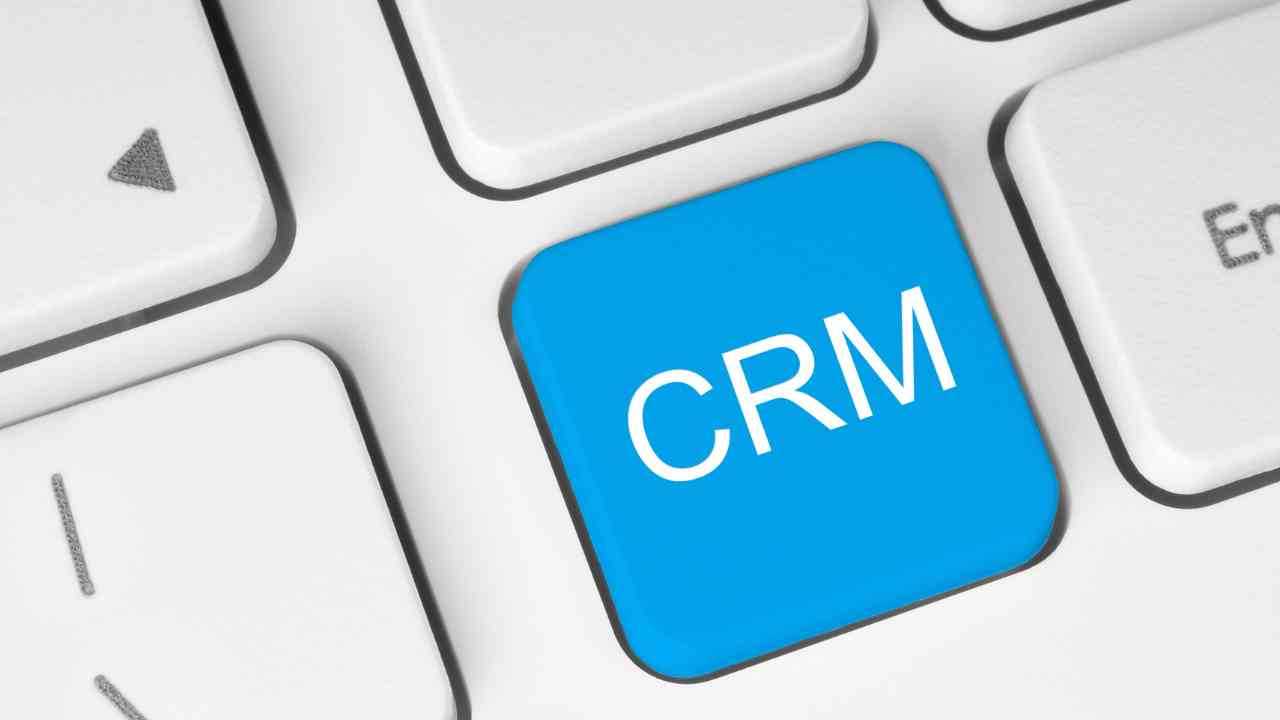Enhancing Customer Satisfaction with CRM

Customer satisfaction is a crucial aspect of any business. Satisfied customers are more likely to become loyal, repeat customers and recommend your products or services to others. In today’s competitive market, businesses need to go above and beyond to meet customer expectations and provide exceptional experiences. One way to achieve this is by implementing a Customer Relationship Management (CRM) system. In this article, we will explore how CRM can enhance customer satisfaction and provide valuable insights into its benefits.
What is CRM?
CRM stands for Customer Relationship Management. It is a technology-driven strategy that helps businesses manage their interactions and relationships with customers. CRM systems provide a centralized platform to store customer data, track interactions, and analyze customer behavior. By leveraging CRM, businesses can streamline their sales, marketing, and customer service processes, leading to improved customer satisfaction.
The Benefits of CRM in Enhancing Customer Satisfaction
Implementing a CRM system can have numerous benefits for businesses in terms of enhancing customer satisfaction. Let’s explore some of the key advantages:
1. Improved Customer Service
A CRM system allows businesses to have a 360-degree view of their customers. It provides a comprehensive history of customer interactions, including previous purchases, inquiries, and support tickets. With this information readily available, customer service representatives can provide personalized and efficient support, addressing customer needs promptly. This level of personalized service leads to higher customer satisfaction and loyalty.
2. Enhanced Communication
CRM systems enable businesses to communicate with their customers through various channels, such as email, phone, and social media. By integrating these communication channels into a single platform, businesses can ensure consistent and timely communication. For example, if a customer reaches out via email, the CRM system can automatically assign the inquiry to the appropriate department and track its progress. This streamlined communication process eliminates delays and ensures that customers receive prompt responses, further enhancing their satisfaction.
3. Personalized Marketing Campaigns
CRM systems provide valuable insights into customer behavior and preferences. By analyzing this data, businesses can create targeted and personalized marketing campaigns. For example, if a customer has previously purchased a specific product, the CRM system can automatically send them personalized recommendations or discounts related to that product. This level of personalization makes customers feel valued and understood, leading to increased satisfaction and engagement.
4. Efficient Sales Process
CRM systems streamline the sales process by automating various tasks and providing sales representatives with valuable insights. For example, a CRM system can automatically assign leads to sales representatives based on predefined criteria, ensuring that each lead receives prompt attention. Additionally, CRM systems can track the progress of each lead, providing sales representatives with real-time information on where each lead stands in the sales pipeline. This visibility enables sales representatives to prioritize their efforts and focus on leads that are most likely to convert, resulting in a more efficient sales process and higher customer satisfaction.
Case Study: XYZ Company
Let’s take a look at a real-life example of how CRM implementation enhanced customer satisfaction. XYZ Company, a leading e-commerce retailer, decided to implement a CRM system to improve their customer service and sales processes.
Before implementing CRM, XYZ Company faced challenges in providing personalized customer support. Customer inquiries were often lost or delayed, leading to frustrated customers. Additionally, their sales team struggled to prioritize leads and track their progress effectively.
After implementing a CRM system, XYZ Company experienced significant improvements in customer satisfaction. The customer service team had access to a centralized platform where they could track customer interactions and respond promptly. This resulted in faster resolution times and increased customer satisfaction.
The sales team also benefited from the CRM system. They could easily track leads, prioritize their efforts, and provide personalized follow-ups. As a result, the sales team saw an increase in conversions and customer satisfaction.
Statistics on CRM and Customer Satisfaction
Let’s take a look at some statistics that highlight the impact of CRM on customer satisfaction:
- According to a study by Nucleus Research, businesses that implement CRM systems experience an average increase in customer satisfaction by 35%.
- A survey conducted by Salesforce found that 84% of customers say being treated like a person, not a number, is very important to winning their business.
- Research by Aberdeen Group shows that companies with effective CRM systems achieve an average customer retention rate of 89%, compared to 33% for companies without CRM.
Implementing a CRM system can significantly enhance customer satisfaction. By providing a centralized platform for managing customer interactions, businesses can improve customer service, enhance communication, personalize marketing campaigns, and streamline the sales process. Real-life examples and statistics demonstrate the positive impact of CRM on customer satisfaction. To take advantage of these benefits, businesses should consider implementing a CRM system like SaasExpert.ca – Your All-In-One Sales and Marketing Platform for small businesses, agency owners, and marketers. By leveraging CRM technology, businesses can create exceptional customer experiences and build long-lasting relationships with their customers.
Read more about “Enhancing Customer Care with CRM Solutions” right here.
Frequently asked questions about Enhancing Customer Satisfaction with CRM.

How Can CRM Systems Enhance Customer Satisfaction Through Personalization? 👤
Personalization is no longer an optional aspect of customer interaction; it’s a necessity. With CRM, we have the data and analytics capabilities to create a customized experience for each client. 📊
A CRM system doesn’t just store customer names, addresses, and contact information. It maintains a rich history of all interactions, including preferences, pain points, and even how they engage with your website or mobile app. By tracking this information over time, businesses can understand their clients’ behavior, anticipate needs, and make recommendations. 🎯
Why is this crucial? Because in a world saturated with options, customers yearn for a simplified, yet personal experience. Imagine logging into a website and finding suggestions based on your past behavior, or receiving an email notifying you of a discount on an item you’ve been eyeing. That’s personalization. It increases customer satisfaction, encourages repeat business, and builds brand loyalty. 💪
What Role Does Timely Customer Service Play in Customer Satisfaction and How Can CRM Facilitate This? ⏰
Time is of the essence in customer service. The faster you address customer queries, the higher the satisfaction level. CRM systems can streamline this process dramatically. 🚀
Take ticketing systems, for instance. A customer submits a query or complaint, and the CRM system can automatically route this ticket to the most appropriate service rep or department. This minimizes waiting time and also ensures that the customer’s issue is resolved by someone who understands that particular problem. 🎯
Furthermore, CRM systems often have chatbot capabilities, which can handle basic issues 24/7, freeing human resources to deal with more complex situations. 🤖
Can CRM Systems Help in Customer Retention and, if so, How? 🔄
Customer retention is not just about solving problems but creating an experience so fulfilling that customers wouldn’t dream of going elsewhere. A well-implemented CRM system helps you keep tabs on customer behaviors and preferences. 🔍
If a customer has recently purchased a particular product, automated follow-up emails asking for reviews or providing tips on using the product can be triggered. You can even offer loyalty points or discounts for repeat purchases, all of which will be tracked by the CRM. This kind of tailored interaction makes customers feel valued and less likely to switch to a competitor. 🛡️
How Do CRM Systems Help in Gathering and Analyzing Customer Feedback? 📢
Customer feedback is invaluable. With CRM, not only can you easily collect this feedback through automated surveys, reviews, and direct interactions, but you can also analyze it effectively. 📊
Most advanced CRM systems have built-in analytics tools that allow you to sift through customer feedback to find trends. Are customers consistently praising a particular feature of your product? That’s a selling point. Are they consistently encountering a specific issue? That’s a roadmap for your product development team. 🧭
The quicker you act on this feedback, the higher your customer satisfaction will be. It’s as simple as that. 🎯
How Can CRM Systems Help in Managing Customer Life Cycles for Enhanced Satisfaction? 🔄
A customer life cycle doesn’t just end with a sale; in fact, that’s only the beginning. A CRM system can help you identify where each customer is in their life cycle with your business, allowing you to interact with them strategically. 🎛️
For a new customer, for example, you may want to send informative content that helps them get the most out of your service. For a long-time customer, you may want to send loyalty rewards or offers for complementary products. A CRM can automate these processes, ensuring that you’re reaching out to your customers with the right message at the right time. 🕰️
By proactively managing the customer life cycle, you are effectively reducing churn and increasing the likelihood of repeat business, both of which are key metrics for customer satisfaction. 📈







